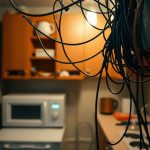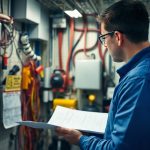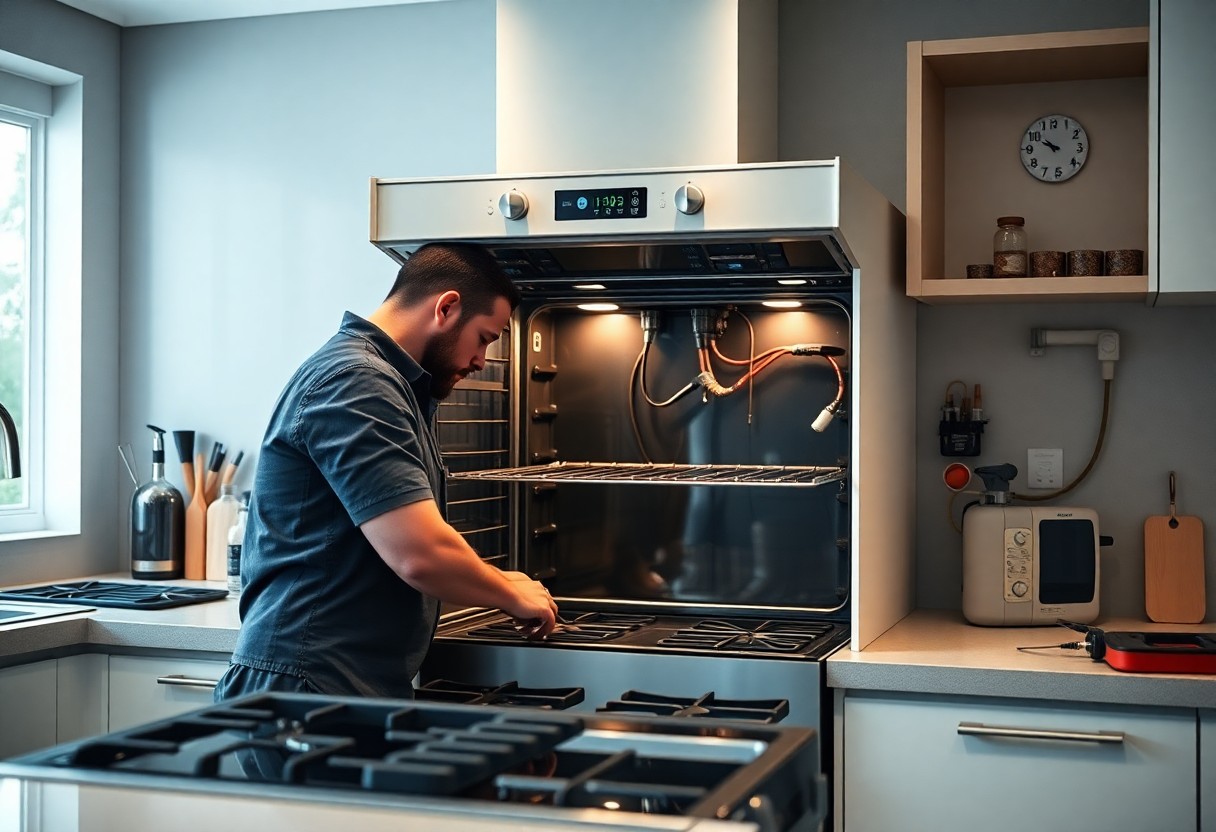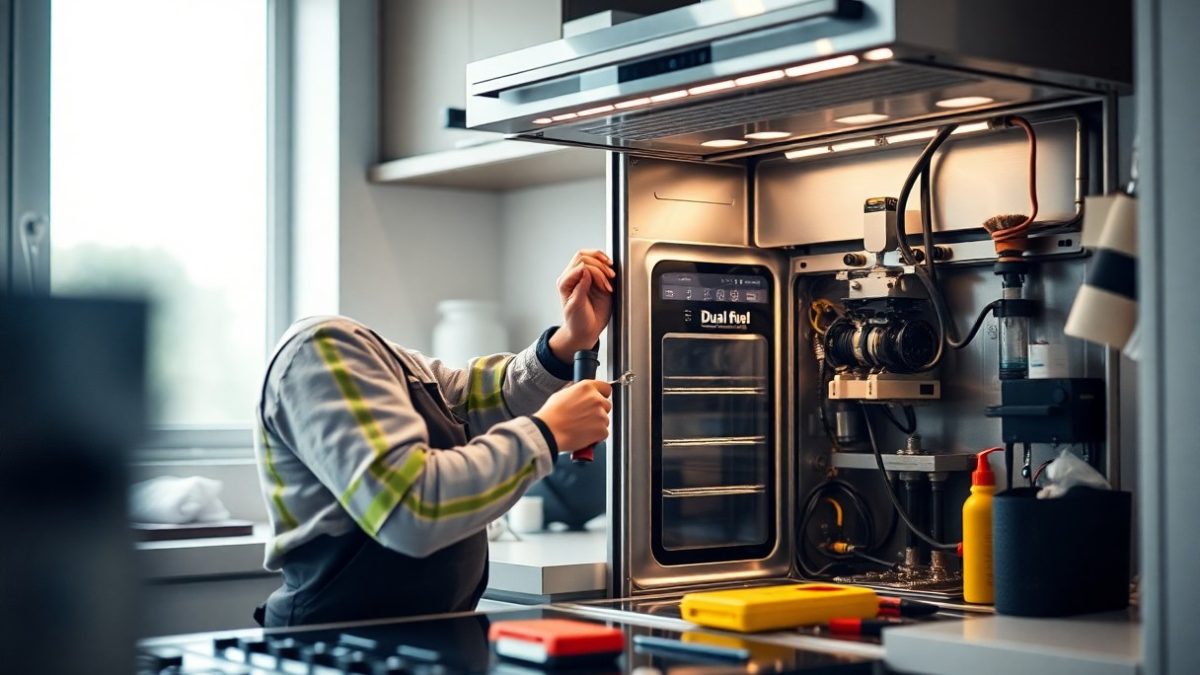
Are There Surreptitious Dangers Hidden In Your Electrical Wiring For Appliance Connectivity?
November 18, 2024
How Can You Navigate The Byzantine Regulations For Electrical Appliance Installations?
November 20, 2024Considerations for dual-fuel appliance installations encompass several unique factors that can impact efficiency, safety, and overall performance. You must ensure that your existing gas and electric systems are compatible with the new appliance, as well as verify that proper ventilation and safety measures are in place. Understanding the specific requirements of dual-fuel models will help you maximize their benefits while adhering to local codes and regulations. By taking these key factors into account, you can facilitate a successful installation that enhances your kitchen and cooking experience.
Understanding Dual-Fuel Appliances
For homeowners seeking efficiency and versatility in their cooking and heating solutions, dual-fuel appliances can be an excellent choice. By combining electric and gas fuel sources, these appliances offer a unique blend of performance and convenience, allowing you to enjoy the best of both worlds in your kitchen or home.
Definition and Functionality
For those unfamiliar, dual-fuel appliances integrate both gas and electric functionality, typically featuring a gas range or cooktop paired with an electric oven. This design optimizes cooking methods, offering gas for precise temperature control and rapid heating, while utilizing electric elements for even baking and consistent heat retention.
Benefits of Dual-Fuel Systems
Definition: Dual-fuel systems are designed to enhance your cooking experience by leveraging the strengths of both fuel types. The advantages of these systems often include better temperature control, energy efficiency, and increased cooking options, making them a popular choice for culinary enthusiasts.
This approach allows you to cook with precision and increased versatility. You can enjoy faster heating with gas while also benefiting from the steady, even temperatures provided by electric ovens. Additionally, dual-fuel systems can enhance energy efficiency, possibly lowering your utility bills while providing unparalleled performance during your culinary adventures.
Installation Requirements
Now, when installing dual-fuel appliances, you must adhere to specific installation requirements to ensure efficiency and safety. It’s advisable to reference the Installation Considerations for Outdoor Gas Appliances for comprehensive guidance. Make sure to check local codes and regulations that may influence the installation process, including gas line access and plumbing needs.
Regulatory Compliance
Behind every successful dual-fuel appliance installation lies strict adherence to regulatory compliance. You need to familiarize yourself with local and national codes governing gas and electric installations to ensure that your setup meets safety standards and legal requirements, reducing risks associated with non-compliance.
Safe Ventilation Considerations
Around your dual-fuel appliance, adequate ventilation is a significant factor for safe operation. Ensure that you provide proper airflow to prevent the buildup of harmful gases and maintain optimal appliance performance.
To achieve safe ventilation, evaluate your installation location for adequate air circulation, considering both passive and active ventilation systems. Make sure to install vent lines according to manufacturer specifications and local codes. Properly venting your appliance helps to mitigate the risk of gas leaks and maintains overall air quality, contributing to a safer environment in your home.

Fuel Type Considerations
The selection of fuel type for your dual-fuel appliance installation is a significant factor that can impact both performance and efficiency. You should consider the availability and cost of the fuel in your area, as well as the compatibility of the appliance with each fuel type. Natural gas and propane vary in energy content and price, influencing your overall operating costs and maintenance requirements.
Natural Gas vs. Propane
An understanding of the differences between natural gas and propane is crucial for making an informed choice. Natural gas is typically supplied via a municipal pipeline and is generally less expensive than propane. In contrast, propane is delivered in tanks and may offer greater versatility in rural areas. Factor in both the energy content and the specific needs of your appliance to determine the most suitable option.
Efficiency Ratings and Cost Analysis
Beside fuel type, efficiency ratings of the appliances you are considering play an important role in your overall cost analysis. Evaluating the efficiency ratings can help you estimate potential energy savings, which can offset installation and operational costs over time.
Understanding the efficiency ratings of your dual-fuel appliances allows you to assess their long-term cost-effectiveness. Higher efficiency models may require a larger initial investment but can result in decreased energy bills and fewer emissions. Be sure to compare not only the upfront costs but also the expected operational expenses over the appliance’s lifespan to get the complete financial picture.
Safety Protocols
After installing a dual-fuel appliance, it is imperative to implement stringent safety protocols to minimize risks associated with gas and electricity. You should ensure that all installations comply with local regulations and codes, as well as manufacturer guidelines. Proper ventilation and gas line inspections are vital to prevent accidents, while understanding emergency shut-off procedures can protect you and your family from potential hazards.
Carbon Monoxide Detection
Safety mechanisms, such as carbon monoxide detectors, are imperative for safeguarding your home. You should install these detectors close to sleeping areas and on each level of your home. Regularly testing and replacing batteries will ensure they function effectively, providing an early warning to keep you and your loved ones safe from this colorless, odorless gas.
Regular Maintenance and Inspection
Around your dual-fuel appliances, regular maintenance and inspection are vital to ensure their safe operation. You should schedule routine check-ups with a qualified technician to identify any potential problems early on. This proactive approach helps maintain the efficiency of your appliances, ultimately extending their lifespan and reducing your risk of malfunction.
Even minor issues can lead to significant problems if not addressed promptly. You should conduct visual inspections of your appliance for any signs of wear or damage, such as frayed wires or gas leaks. Additionally, keeping a service history and following a maintenance schedule ensures that all components remain in optimal condition. Investing time in regular inspections can save you from costly repairs and enhance the safety of your home.
Common Installation Mistakes
Unlike standard appliances, dual-fuel systems come with unique complexities that can lead to installation errors. Many homeowners and even professionals overlook specific requirements related to venting, fuel line connections, and electrical setups. Addressing these unique needs is crucial for the proper function of your appliance and to avoid potential safety hazards.
Misalignment with Local Codes
Any installation must align with local building codes. Failing to do so can not only lead to installation problems but may also result in fines or safety issues down the line. Each jurisdiction has specific regulations regarding gas lines, electrical work, and ventilation that you should familiarize yourself with to ensure compliance.
Ignoring Manufacturer Guidelines
An oversight that often occurs is ignoring manufacturer guidelines. These guidelines are specifically designed to ensure optimal performance and safety of your dual-fuel appliance. Installing your unit without adhering to these instructions can lead to improper functioning or even damage.
In fact, manufacturer guidelines provide crucial details on everything from required clearances to connection specifications. Following these directives ensures that your appliance operates efficiently and maintains safety standards. If you deviate from these instructions, you might void your warranty or create hazards that could impact your home and family. Always consult the manufacturer’s manual and consult with a qualified installer to avoid complications.
Expert Consultation
Keep in mind that dual-fuel appliance installations demand expertise to ensure safety and efficiency. Consulting with professionals can provide you with tailored advice to navigate the complexities of these systems. Engaging experts is an investment in both the functionality and longevity of your appliances, ultimately saving you from potential issues down the line.
Choosing Qualified Installers
The selection of qualified installers is imperative to the success of your dual-fuel appliance installation. Make sure to research and verify the credentials of your potential contractors. Check for necessary licenses, certifications, and customer reviews to ensure you engage someone with a proven track record in handling dual-fuel systems.
Importance of Professional Guidance
To avoid pitfalls in your installation process, you should seek professional guidance. Skilled technicians have the knowledge to assess your home’s unique requirements and provide insights tailored to your situation. They can help you choose the right appliances, ensuring that they work harmoniously together for optimal performance.
Installers understand the intricacies of dual-fuel systems and can identify potential challenges that might not be apparent to you. Their experience allows them to implement best practices that enhance safety and efficiency, minimizing risks associated with improper installation. By relying on their expertise, you can enjoy peace of mind knowing that your dual-fuel appliances are set up correctly and will perform efficiently for years to come.
Summing up
The considerations for dual-fuel appliance installations require your attention to safety, compatibility, and efficiency. You should evaluate the existing infrastructure to ensure it supports both fuel types, and consult local regulations for compliance. Proper venting and clearances are imperative for safety. Additionally, familiarize yourself with the manufacturer’s guidelines for installation and maintenance to maximize your appliance’s performance. By taking these factors into account, you can ensure a successful dual-fuel setup that meets your energy needs efficiently.

